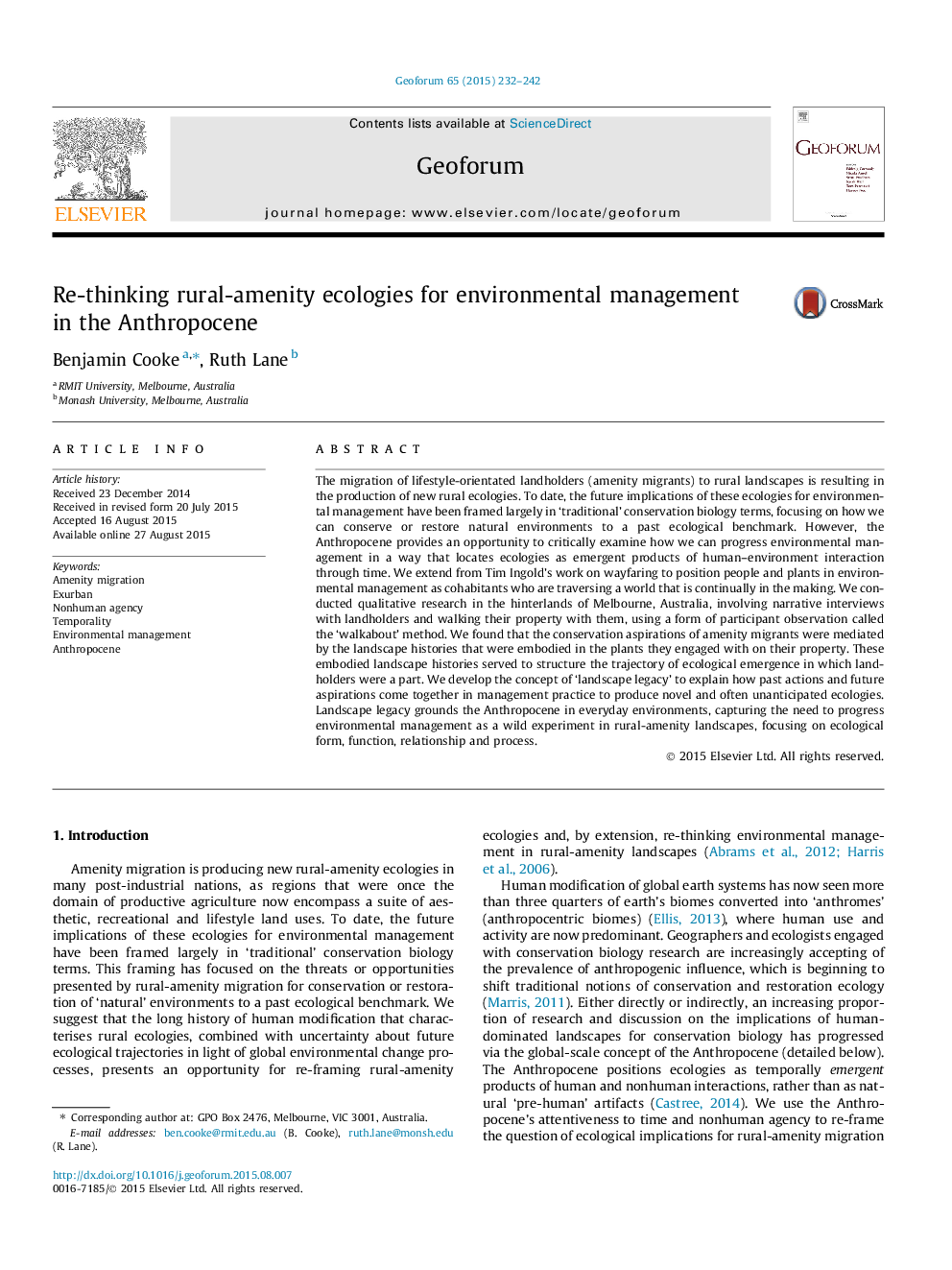| کد مقاله | کد نشریه | سال انتشار | مقاله انگلیسی | نسخه تمام متن |
|---|---|---|---|---|
| 5073808 | 1477124 | 2015 | 11 صفحه PDF | دانلود رایگان |
- The Anthropocene provokes a need to re-think environmental management.
- Plants connect people to the embodied histories of rural landscapes.
- Embodied landscape histories structure future environmental management uncertainty.
- Ecological function must be prioritised over species origin in modified landscapes.
- Modified landscapes are suited to a 'wild experiment' framing for management.
The migration of lifestyle-orientated landholders (amenity migrants) to rural landscapes is resulting in the production of new rural ecologies. To date, the future implications of these ecologies for environmental management have been framed largely in 'traditional' conservation biology terms, focusing on how we can conserve or restore natural environments to a past ecological benchmark. However, the Anthropocene provides an opportunity to critically examine how we can progress environmental management in a way that locates ecologies as emergent products of human-environment interaction through time. We extend from Tim Ingold's work on wayfaring to position people and plants in environmental management as cohabitants who are traversing a world that is continually in the making. We conducted qualitative research in the hinterlands of Melbourne, Australia, involving narrative interviews with landholders and walking their property with them, using a form of participant observation called the 'walkabout' method. We found that the conservation aspirations of amenity migrants were mediated by the landscape histories that were embodied in the plants they engaged with on their property. These embodied landscape histories served to structure the trajectory of ecological emergence in which landholders were a part. We develop the concept of 'landscape legacy' to explain how past actions and future aspirations come together in management practice to produce novel and often unanticipated ecologies. Landscape legacy grounds the Anthropocene in everyday environments, capturing the need to progress environmental management as a wild experiment in rural-amenity landscapes, focusing on ecological form, function, relationship and process.
Journal: Geoforum - Volume 65, October 2015, Pages 232-242
